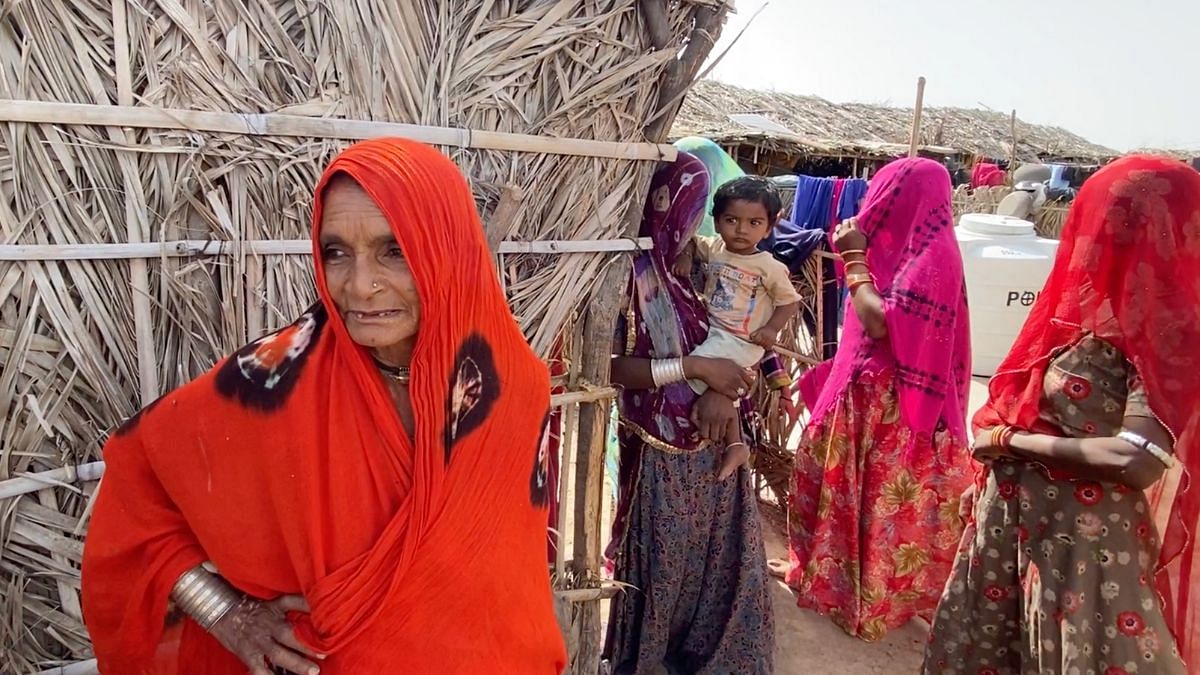Jodhpur: Contrary to Karachi-based Deepna Rajput’s viral Instagram reel on happy Pakistani Hindus, migrants from the community who have settled in Rajasthan’s Jodhpur have claimed that every one of them wait for an opportunity to leave Pakistan.
Hemji Thakor from Jodhpur’s Anganwa settlement claimed the reel was a sham. “One of my kids showed it to me. They can say whatever in public, but in reality, not a single Hindu living in Pakistan is happy. Internally, all are upset and waiting for the right opportunity to flee the country,” Thakor said.
Rajasthan reportedly has nearly 25,000 registered migrants from Pakistan, with the maximum — 18,000 — living in settlements in Jodhpur. Many have pinned their hopes on becoming Indian nationals under the Citizenship (Amendment) Act (CAA). However, under the CAA rules, notified in March this year, only those who arrived before 31 December, 2014, will benefit.
Now, demands for an extension or removal of the cut-off date and fresh calls for basic amenities are doing the rounds in the settlements.
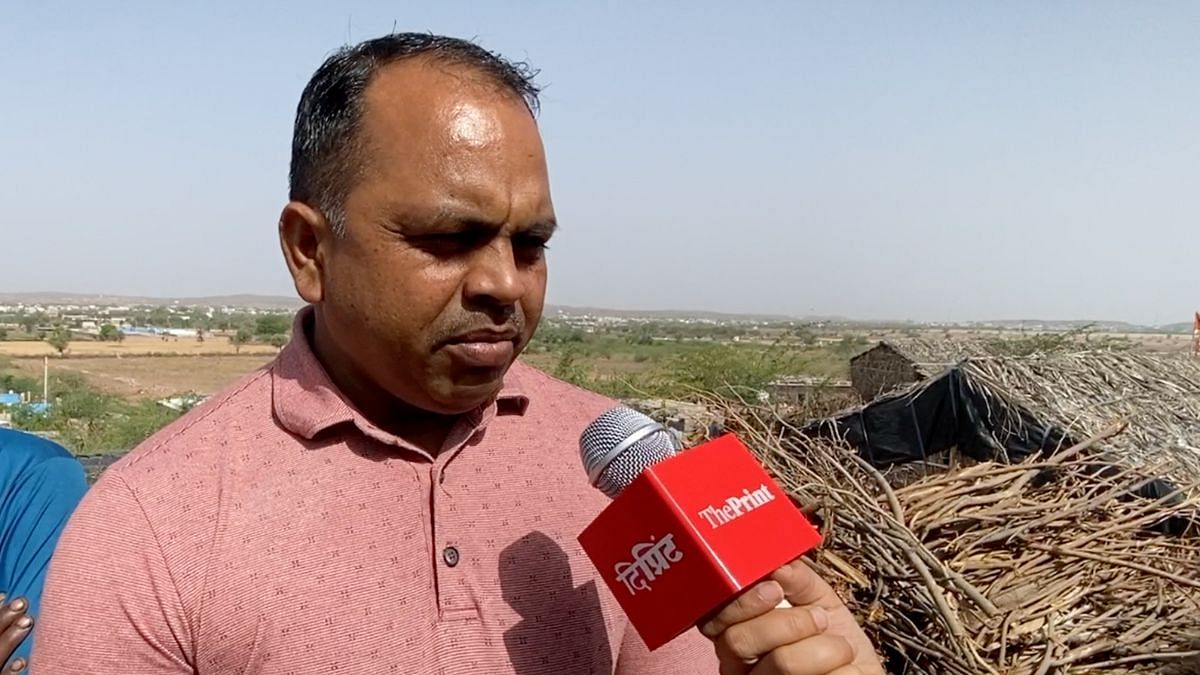
Over nine years ago, Hemji Thakor, who had been in touch with a few Pakistani Hindu migrants in Jodhpur, came to Rajasthan with his wife and four children on a short-duration visa to visit specific religious sites. From Mirpur Khas, the sixth largest city in the Sindh province and one of the largest in Pakistan, Thakor did not return.
A nursing staffer in Pakistan and now a medical storekeeper, Thakor wants to stay in Jodhpur with his family, but came to India in January 2015, which makes the family ineligible for Indian citizenship under the CAA rules.
Requesting the government to revise the cut-off date, Thakor said, “Hindu women (in Pakistan) face harassment every single day. Even minors aren’t spared. They are gang raped, kidnapped… slowly, all are being converted.”
“The way minorities have been treated in Pakistan, especially over the past 30-40 years… I made a plan to leave the country and head to India. I realised with each passing day that living in Pakistan would become dangerous for Hindus,” he added.
Under the CAA, Hindus, Sikhs, Buddhists, Jains, Parsis, and Christians from Afghanistan, Bangladesh, and Pakistan can apply for Indian nationality after six years of residence in India, instead of the usual 12 years, even if they do not have proper documents.
Passed by the Parliament on 11 December 2019, the CAA was met with waves of protests—including in Delhi’s Shaheen Bagh — as, for the first time, it made religion a criterion for Indian citizenship.
Thakor, however, is grateful. “I would like to thank Modiji and Amit Shahji for thinking about our plight,” he said.
“Some people are now opposing the law, and the entire community — the Pakistani migrants living here (in Jodhpur) — has gone into depression over fears that we might be forced to go back to Pakistan,” he added.
Not just citizenship, the migrants in the Anganwa settlement also want the government to “at least provide basic infrastructure”.
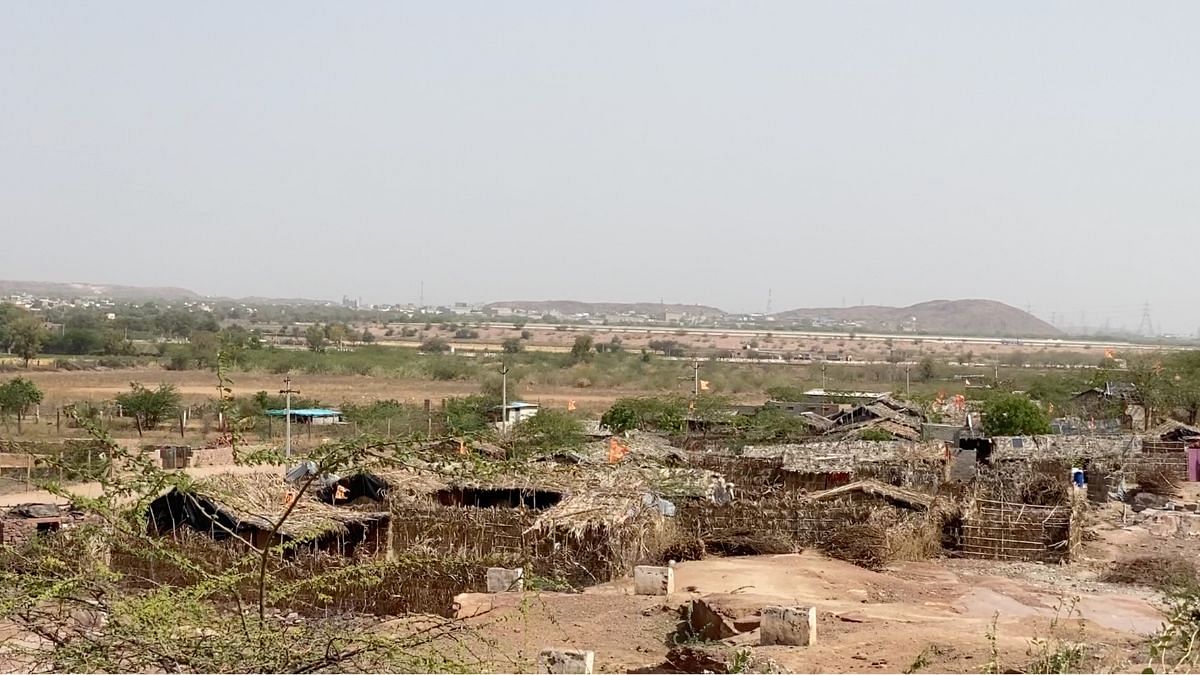
“We are grateful for all that has been done for us, but we want the government to see our condition. Our kids can’t even attend government schools as they don’t have proper documentation. We have to rely on doing odd jobs here and there to survive. Some work at the stone mines,” said Chaggan, another resident of the Anganwa settlement.
Also read: In Delhi camp, Pakistani Hindus relieved by HC order & CAA but still seek acceptance — ‘We’re Sanatanis’
‘School options, toilets lacking’
The Anganwa settlement has nearly 250 families, supported by a school set up by the Universal Just Action Society, a non-profit founded by activist Hindu Singh Sodha. Earlier, the settlement had 33 families, and over the decades, it has gone up to 250, said Thakor.
He added that all the families here struggle with lack of space and hygiene issues as people defecate in the open in the absence of toilets. There are also no roads, electricity, or even water.
Some residents said they have raised their problems with the chief minister and are hoping for relief.
“Many have been living here for the past 10-12 years, and our children attend the school inside the settlement as they can’t take admission outside without proper identification documents and citizenship. We hope that we will get citizenship soon,” said Ram Singh, who came to India in 2018 from Pakistan’s Sindh province.
Singh said the absence of toilet facilities is all the more “concerning for the women in the area”. “They have to wait till it is dark to go out,” he said.
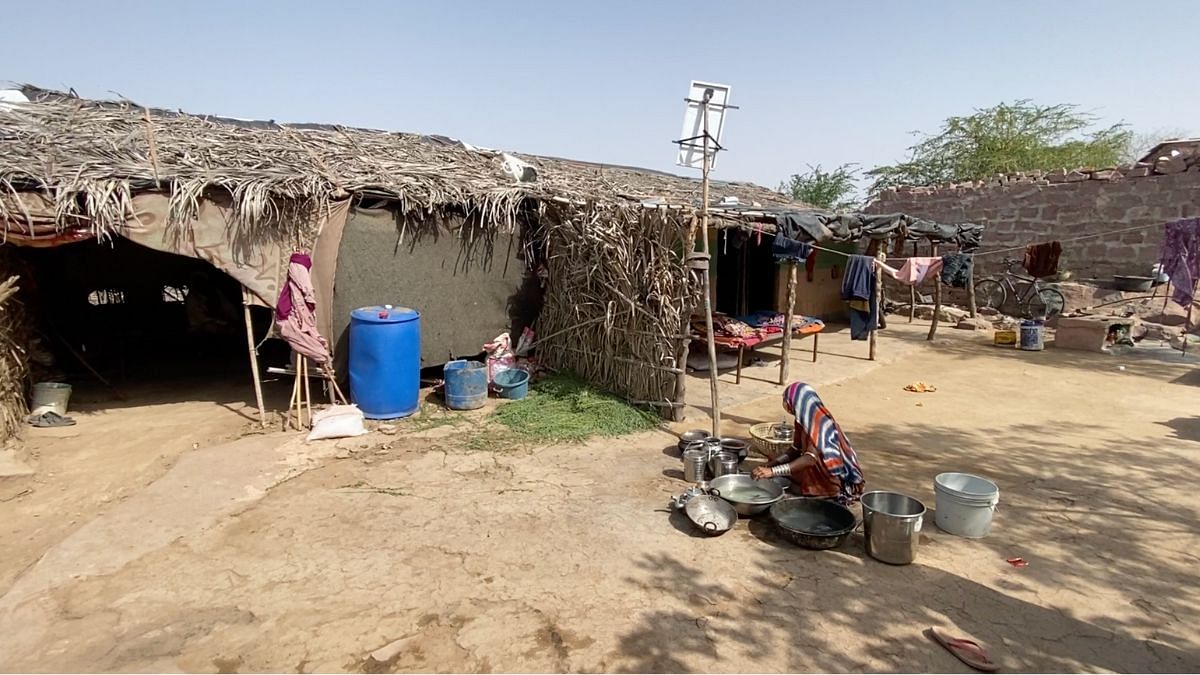
Hindu Singh Sodha, also the president of Seemant Lok Sangathan (SLS), an organisation working for the welfare of families of Hindu migrants displaced from Pakistan, welcomes the CAA but said the government should do away with the cut-off date.
“CAA rules have now been notified, finally… Now, we are happy that within six years, people will get citizenship, but the cut-off date is an issue as they (many Pakistani Hindus) will not be covered,” he added.
About the circumstances in which Hindus came from Pakistan, Sodha said: “Due to religious persecution, Hindus from Pakistan have been coming to India, especially in 1965 — the first migration to happen after 1947 — around 10,000 people had come. Around 90,000 people came after that.”
“After the 1990s, when the entire border got fenced, and the Ram Mandir and Babri (Masjid) issue was on, a number of temples were destroyed and Hindus were killed in Pakistan… a number of people started migrating, which continues even today,” he added.
Sodha said another issue is of visas for all members of extended families. “Four to five people end up coming, and (the) rest of the family gets left behind in Pakistan. When they spend a minimum period, they should get citizenship,” he said.
People have come to India due to religious persecution in Pakistan, and it takes a lot of time for them to get citizenship, said Sodha, adding that the government doesn’t take initiative to provide them with shelter or job opportunities for their livelihood and health in the in-between period.
“We are the ones who work on these aspects and run schools, etc. We want to request the government that it should take this matter seriously. For their rehabilitation and overall development, so they can lead a respectable life,” he added.
Also read: India-Pakistan lesbian couple breakup leaves fans hopeless, ‘desi queer world in shambles’
BJP’s poll plank
The CAA is a poll plank for the BJP, with Union Home Minister Amit Shah Tuesday launching a scathing attack on Congress leader P. Chidambaram over his remarks on the CAA being “patently discriminatory”, saying the BJP has been fighting against appeasement politics for years. Speaking to ANI, Shah said the Congress wanted to scrap CAA to strengthen their “minority” vote bank.
Though most Hindu migrants ThePrint spoke to have not got their citizenship and cannot vote, Nisha, a resident of Kaliberi settlement in Jodhpur, said she possesses a voter ID card. Her family had come to India nearly 30 years ago.
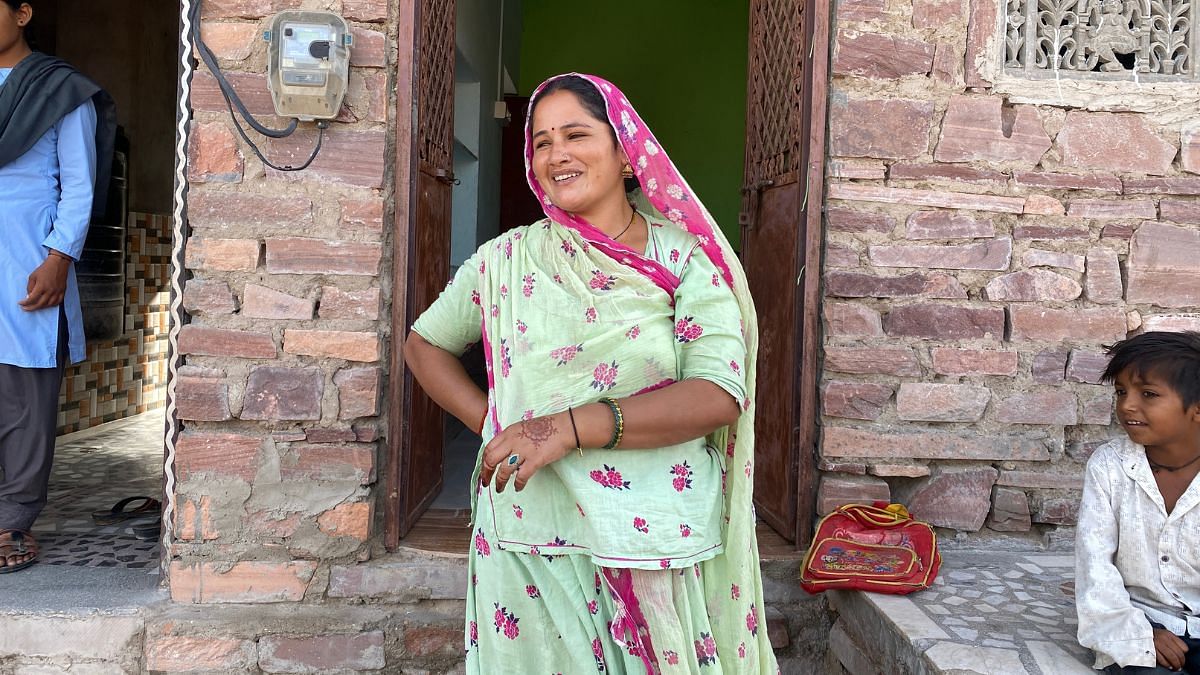
“I will cast my vote in the elections and am happy that the government has notified the CAA. My extended family members, who live here with us, are yet to get citizenship; it will definitely help them,” she added.
Nisha, who became an Indian national under the Citizenship Act of 1955 as a child, is now married with two children.
According to the government, the broader criteria for non-Muslims to get citizenship under the CAA include proof of entry from Bangladesh, Afghanistan, and Pakistan before 31 December, 2014, and nationality, combined with a self-declaration affidavit and an eligibility certificate issued by a local community institution.
(Edited by Madhurita Goswami)
Also read: Jat resentment a worry for BJP in Rajasthan, could spill into other states

